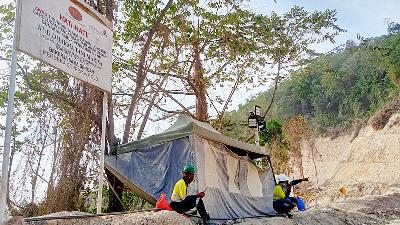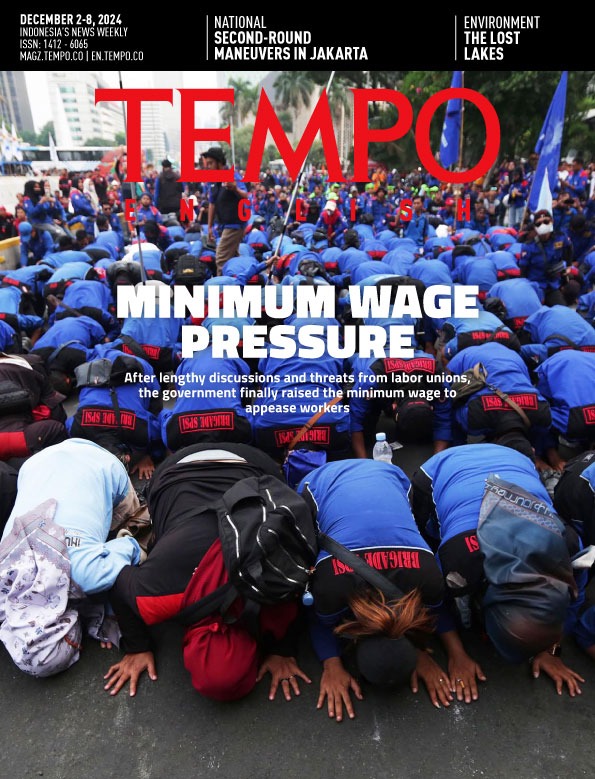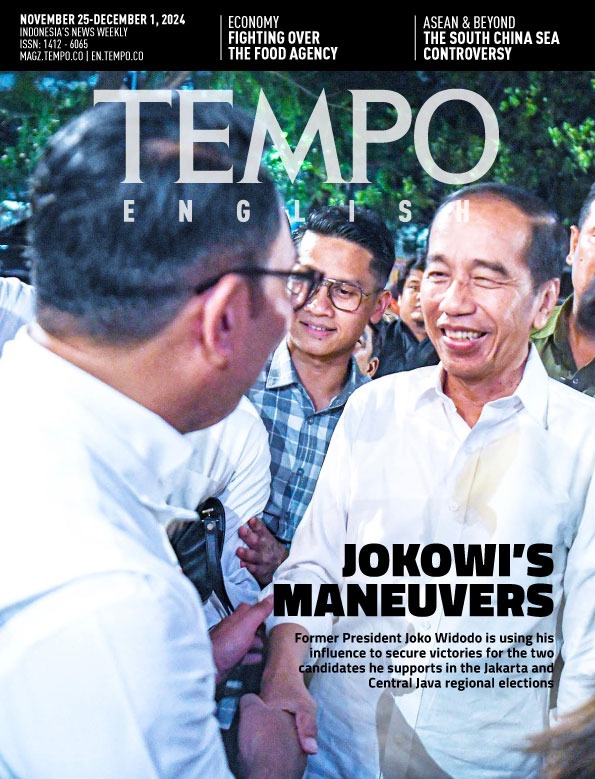The Customary Land Registration Time Bomb
Monday, November 20, 2023
The issuing of land use permits (HPL) for customary land is all tied up with the interests of investors. This could easily trigger a new agrarian conflict.
arsip tempo : 173484729897.

THE government’s policy to issue land utilization certificates (HPL) for customary land to indigenous communities is a time bomb. As well as being tied up with the interests of investors, this policy could easily lead to horizontal conflicts in the future.
Agrarian Affairs and Spatial Planning Minister/Head of the National Land Agency Hadi Tjahjanto issued HPLs for land covering 107,714 square meters to four indigenous groups in West Sumatra on October 10. They were also issued on October 17 to indigenous communities from the Sawoi ethnic group in Jayapura, Papua for land covering 699.7 hectares.
The government claims that providing certificates for customary land is aimed at guaranteeing legal certainty, as well as providing economic benefits to indigenous people. With these certificates, these people can obtain economic benefits, for example, by cooperating with investors to manage the land.
However, it is easy to interpret these economic benefits as the interests of investors. The legal basis for the provision of HPLs on customary land is Government Regulation No. 18/2021 on the Right to Manage, the Right to Land, Village Units and Land Registration. It is claimed that this regulation is a derivative regulation from the Job Creation Law, despite the fact that this omnibus law only covers HPLs on state-owned land, which does not include customary land.
The problem with the certification policy is related to the right to regulate land use. Government Regulation No. 18/2021 states that the authority to issue certificates lies with the minister. By issuing HPLs for customary land, the government is indirectly taking over the authority to manage this land from indigenous people.
According to Law No. 5/1960 on the Basics of Agrarian Matters, the authority to manage traditional land—including customary land—should be outside the authority of the state. This provision was reinforced by Constitutional Court Ruling No. 35/2012, which stated that customary forests on traditional land are not state forests.
The struggle that indigenous people have been fighting is not to obtain HPLs, but for state recognition of traditional lands. The fact is that the designation of traditional forests or lands by the state is still far from what had been hoped for. As of October, the area designated as customary forest was only 244,000 hectares of the 21.3 million hectares of traditional land recorded by an independent institution, the Customary Land Registration Agency.
This cooperation with investors could also easily trigger conflicts between indigenous people. This could be triggered by disagreements over who is representing indigenous community when reaching cooperative agreements with investors. It could also be triggered by unequal sharing of the profits among indigenous people. Soon after a ‘collusion’ is reached between particular indigenous people and investors, new types of agrarian conflicts break out.
Based on data from the Agrarian Renewal Consortium, there have been 2,710 agrarian conflicts during the administration of President Joko Widodo. Most of these have been triggered by arbitrary government decisions to provide concessions to businesspeople on traditional land. The parties to the conflict have usually been indigenous people and businesspeople backed by the government. In the future, it is highly likely that these conflicts can erupt into violence clashes.











